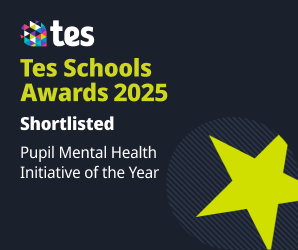Computing
At The Skinners' Kent Academy, we are committed to creating a dynamic, inclusive learning environment where students are inspired to become innovative problem-solvers and ethical digital citizens. Grounded in the principles of the International Baccalaureate and our Academy’s core values - Success, Kindness and Aspiration - we strive to empower students to explore the transformative potential of technology through a curriculum that emphasises computational thinking, creativity and real-world applications.
Our mission is to foster an environment where students are equipped to become:
- Innovative Problem-Solvers: Embracing cutting-edge technologies and real-world challenges to create impactful solutions.
- Ethical Digital Citizens: Developing a deep understanding of the societal implications of technology and cultivating responsible behaviour in the digital world.
- Resilient Learners: Confronting challenges with perseverance and learning from setbacks to nurture a growth mindset.
Our progressive curriculum spans from Key Stage 3 to Key Stage 5, providing a comprehensive learning journey. In Key Stage 3, students explore the technical aspects of computing, engage in hands-on projects, and gain foundational coding skills. At Key Stage 4, we offer GCSE Computer Science, and in Key Stage 5, students can pursue the IB Level 3 course in Information Technology in a Global Society. Throughout their learning, students participate in practical, real-world projects that challenge them to design, program, and critically assess digital solutions, preparing them to navigate and shape the digital world with confidence and responsibility.
Outside the classroom, we cultivate a culture of curiosity and collaboration through co-curricular activities, such as cyber competitions and interdisciplinary projects. By nurturing a passion for technology and its ethical implications, we aim to develop students who are not only skilled in technical fields but also principled in their approach to the ever-evolving digital landscape.
Years 7, 8 & 9
IB MYP Design using IT
Years 7, 8 and 9 students follow a bespoke curriculum designed to support students in using their iPads within the Academy, whilst delivering a broad mixture of topics and skills from the Computer Science, Information Technology and Digital Media curricula. As part of the Middle Years Programme (MYP), IT based design projects are used to challenge all students to:
-
apply practical and creative thinking skills to solve design problems using IT
-
explore the role of IT design in both historical and contemporary contexts
-
consider their responsibilities when making IT design decisions and taking action.
MYP design using IT focuses on a holistic design process rather than final products and solutions. The structure of this curriculum helps students learn, how to independently teach themselves, by allowing them to develop and apply social, thinking, research, communication and self-management skills.
Pupils will be taught to:
-
design, use and evaluate computational abstractions that model the state and behaviour of real-world problems and physical systems
-
understand several key algorithms that reflect computational thinking [for example, ones for sorting and searching]; use logical reasoning to compare the utility of alternative algorithms for the same problem
-
use two or more programming languages, at least one of which is textual, to solve a variety of computational problems; make appropriate use of data structures [for example, lists, tables or arrays]; design and develop modular programs that use procedures or functions
-
understand simple Boolean logic [for example, AND, OR and NOT] and some of its uses in circuits and programming; understand how numbers can be represented in binary, and be able to carry out simple operations on binary numbers [for example, binary addition, and conversion between binary and decimal]
-
understand the hardware and software components that make up computer systems, and how they communicate with one another and with other systems
-
understand how instructions are stored and executed within a computer system;
-
understand how data of various types (including text, sounds and pictures) can be represented and manipulated digitally, in the form of binary digits
-
undertake creative projects that involve selecting, using, and combining multiple applications, preferably across a range of devices, to achieve challenging goals, including collecting and analysing data and meeting the needs of known users
-
create, re-use, revise and re-purpose digital artefacts for a given audience, with attention to trustworthiness, design and usability
-
understand a range of ways to use technology safely, respectfully, responsibly and securely, including protecting their online identity and privacy; recognise inappropriate content, contact and conduct and know how to report concerns.
How it is assessed
In Years 7-9, students are assessed on two projects using the following criteria: MYP Criterion A - Inquiring and analysing, MYP Criterion B - Developing ideas, MYP Criterion C - Creating the solution and MYP Criterion D – Evaluating.
For further information click here
Years 10 & 11: Computer Science
Course Title: Computer Science (9-1) - J277
Exam Board: OCR
Qualification: GCSE
About the course
GCSE Computer Science is engaging and practical, encouraging creativity and problem solving. It encourages students to develop their understanding and application of the core concepts in computer science. Students also analyse problems in computational terms and devise creative solutions by designing, writing, testing and evaluating programs
Component 01: Computer systems Introduces students to the central processing unit (CPU), computer memory and storage, data representation, wired and wireless networks, network topologies, system security and system software. It also looks at ethical, legal, cultural and environmental concerns associated with computer science.
Component 02: Computational thinking, algorithms and programming: Students apply knowledge and understanding gained in component 01. They develop skills and understanding in computational thinking: algorithms, programming techniques, producing robust programs, computational logic and translators.
Practical programming: Students are to be given the opportunity to undertake a programming task(s) during their course of study which allows them to develop their skills to design, write, test and refine programs using a high-level programming language. Students will be assessed on these skills during the written examinations, in particular component 02 (section B).
How it is assessed
External Examinations:
Component 01: Computer systems: (1 hr 30 min) Weighting 50%
Component 02: Computational thinking, algorithms and programming: (1 hr 30 min) Weighting 50%
For further information, please click here








